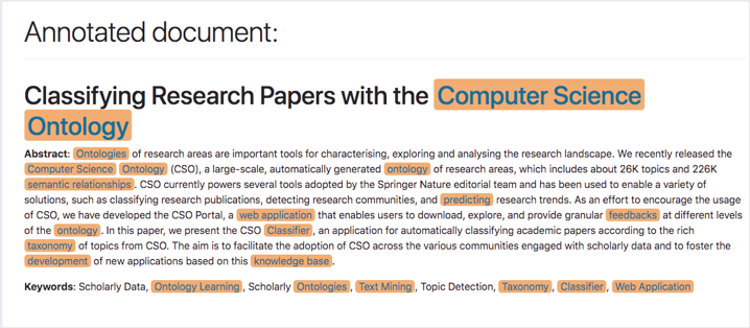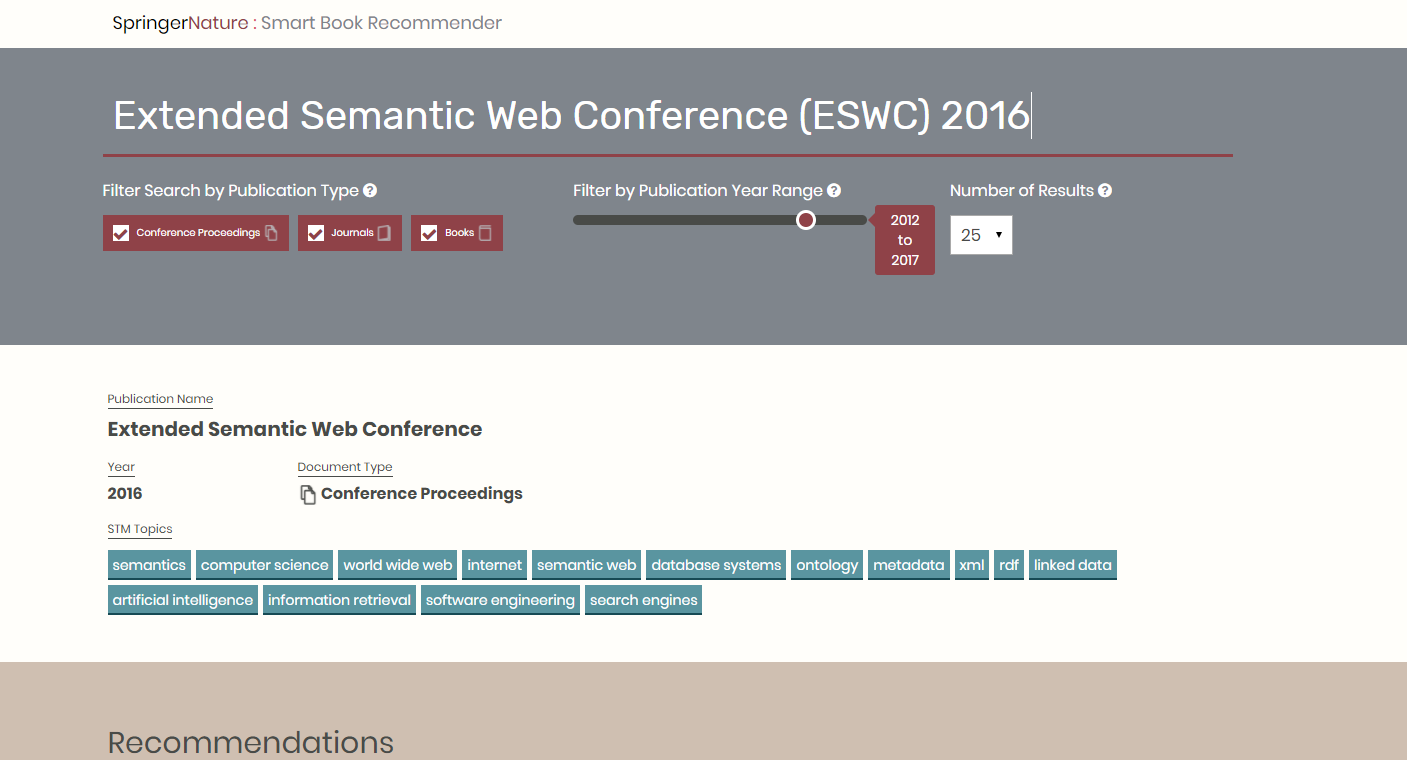Classifying research papers according to their research topics is an important task to improve their retrievability, assist the creation of smart analytics, and support a variety of approaches for analysing and making sense of the research environment. In this page, we present the CSO Classifier, a new unsupervised approach for automatically classifying research papers according to the Computer Science Ontology (CSO), a comprehensive ontology of research areas in the field of Computer Science.
Category: Python

Classifying Research Papers with the Computer Science Ontology
The CSO Classifier is an application for automatically classifying academic papers according to the rich taxonomy of topics from CSO. The aim is to facilitate the adoption of CSO across the various communities engaged with scholarly data and to foster the development of new applications based on this knowledge base.

Springer Nature Hack Day – Berlin
On 26-27 April 2018, Francesco Osborne and I attended the third edition of the Springer Nature Hack Day, which was held in its headquarter in Berlin. The Springer Nature Hack Day is an event that allows researchers, developers, tech companies, and Springer Nature itself, to gather together and tackle current research issues. Offering also opportunities […]

SpringerNature Hackday – London
On the 29th November 2017, myself with two KMi colleagues (Andrea Mannocci and Thiviyan Thanapalasingam) attended the second edition of SpringerNature HackDay in London (@ SpringerNature Campus). Aliaksandr Birukou, Executive Editor of Computer Science at Springer Nature and collaborator of our research team at the Knowledge Media Institute, also joined our group on the HackDay. The whole […]

Smart Book Recommender
The Smart Book Recommender (SBR) is a semantic application designed to support the Springer Nature editorial team in promoting their publications at Computer Science venues. It takes as input the proceedings of a conference and suggests books, journals, and other conference proceedings that are likely to be relevant to the attendees of the conference in question. It […]



